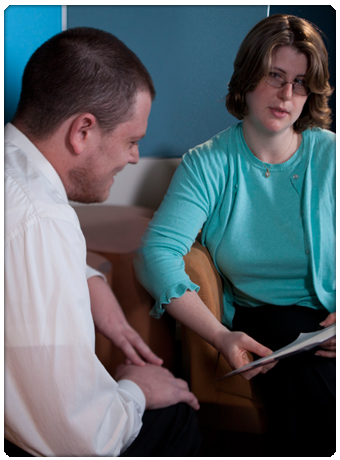
"Emotion regulation skills," or "coping skills" are the responses that individuals develop to help them create an emotional "comfort zone" that is neither too intensely high nor too low. Coping skills help people function, learn, and stay connected with their environment.
After doing an Emotional Check-In with your clients, start this session by helping them identify how they are currently coping with their feelings. Are their coping skills helpful or have they made things worse? For example, many people play music when distressed, which can be very helpful. Drinking alcohol, on the other hand, is a way of coping that often creates its own set of problems.
Your goal is to help clients figure out what they do to cope, both good and bad. Express to your clients that while emotion regulation reduces overwhelming or negative emotions, it also increases positive ones. Ideally you want your clients to reach the emotional state in which they are "comfortable in their own skin."








